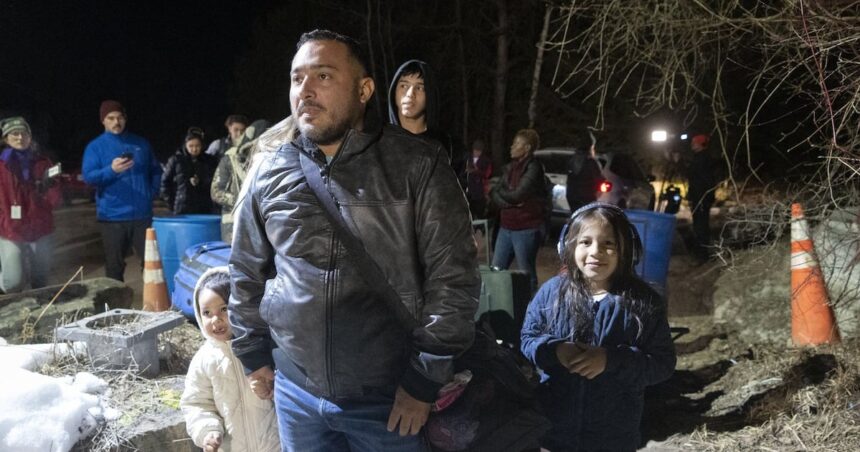In an unprecedented show of solidarity, over 300 civil liberties organizations, privacy advocates, and legal experts have joined forces to oppose the federal government’s contentious border legislation, warning it could fundamentally reshape privacy rights for Canadians. The coalition delivered a strongly-worded letter to Parliament Hill yesterday, arguing that Bill C-23, known as the Border Services Modernization Act, grants border officials excessive surveillance powers with inadequate oversight mechanisms.
“This legislation represents the most significant expansion of border surveillance authority we’ve witnessed in a generation,” said Laura Thompson, executive director of the Canadian Digital Rights Coalition. “The bill essentially creates a surveillance infrastructure that could track Canadians’ movements across borders with minimal judicial oversight.”
At the heart of the controversy lies the bill’s provisions allowing border officials to collect biometric data—including facial recognition scans—from all travelers entering Canada, with limited restrictions on how long this information can be retained or with whom it can be shared. Under current law, such data collection requires reasonable suspicion of legal violations or court approval in most circumstances.
Privacy Commissioner Philippe Martin has expressed “profound concerns” about the bill’s implications. In testimony before the Parliamentary Committee on Public Safety, Martin noted that the proposed legislation “creates a concerning imbalance between security objectives and fundamental privacy protections that Canadians have long expected.”
The government has defended the measures as necessary modernizations to address evolving security threats. Public Safety Minister Catherine Hughes told reporters at a press conference last week that the bill “provides border officers with tools they need while maintaining appropriate safeguards.”
However, legal experts from the University of Toronto’s Citizen Lab have identified troubling provisions that could permit information sharing with foreign governments without court oversight. “The bill’s language is unnecessarily broad and lacks specificity about when and how data can be shared internationally,” explained Dr. Michael Zhang, the lab’s director.
Indigenous organizations have voiced particular alarm, noting that many First Nations communities span the Canada-U.S. border. “For Indigenous peoples whose traditional territories cross colonial borders, this represents another layer of surveillance and potential discrimination,” said Jennifer Cardinal of the Assembly of First Nations.
Business leaders have expressed mixed reactions. The Canadian Chamber of Commerce has supported aspects of the bill aimed at expediting border crossings for trusted travelers, while expressing reservations about data retention policies that could affect international business travelers.
Parliamentary debate on the bill resumes next week, with the government signaling openness to amendments addressing some concerns. Opposition parties have already tabled numerous proposed changes, though critics argue these don’t go far enough to address fundamental flaws.
As Canada navigates this contentious legislation, a larger question emerges about the appropriate balance between national security and civil liberties in an increasingly digital world. With technologies advancing faster than regulatory frameworks, can we create border security systems that protect both our physical and digital boundaries without eroding the privacy rights that define a free society?










